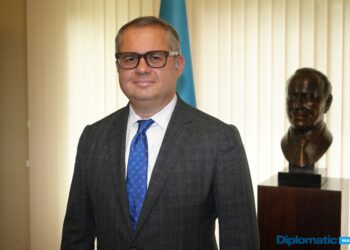Embark on a fascinating journey with Dr. Jozef Hudec, a distinguished Scholar and Diplomat. Dr. Hudec’s expertise in Prehistoric Archaeology, Egyptology and Political Science has greatly influenced his illustrious career in diplomacy. As the Head of the Slovak Representative Office in Palestinian Ramallah and a member of the Scientific Council of the Slovak Historical Institute, Dr. Hudec shares his unique perspective on international relations and the Middle East in an exclusive interview with Diplomatic Watch.
Join us as we explore his scholarly journey, captivating projects and unwavering dedication to strengthening Slovak-Palestinian relations. Get ready to unravel the intricate tapestry of History, Archaeology and Diplomacy in the Middle East with Dr. Hudec. Excerpts:
Can you tell us about your academic background and how it has influenced your career in diplomacy?
My diplomatic career is strongly connected especially to the Middle East and North Africa. These regions have been also part of my academic background in Archaeology, Egyptology and Political Science. Somebody could say that ancient history has no connection to the present. I would not agree with such an opinion. The MENA region is quite strongly connected to history. The knowledge of ancient times allowed me to gain a better understanding of the contemporary region. Just name the idea of Negritude, or Israeli – Palestinian disputes on their roots, as an example. Archaeologists have to make wider mosaic pictures of societies from small pieces of information. Such analytic background is a very useful toolset also for diplomats. Maybe therefore many diplomats in the past but even now are interested in history and archaeology and maybe therefore my career in the Slovak Foreign Ministry switched several times among Slovak Embassies, the MENA Territorial Department and the Analytic and Planning Department.
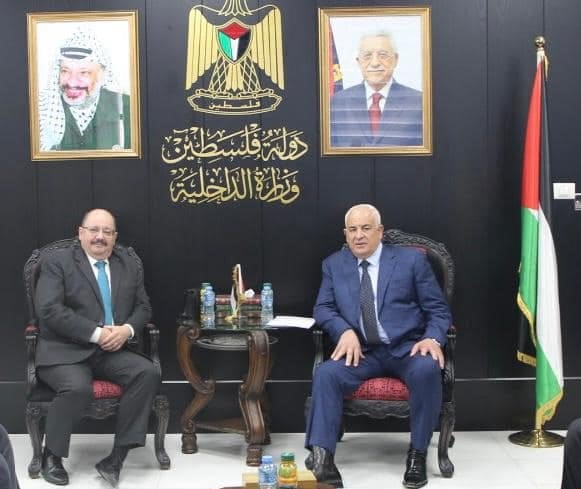
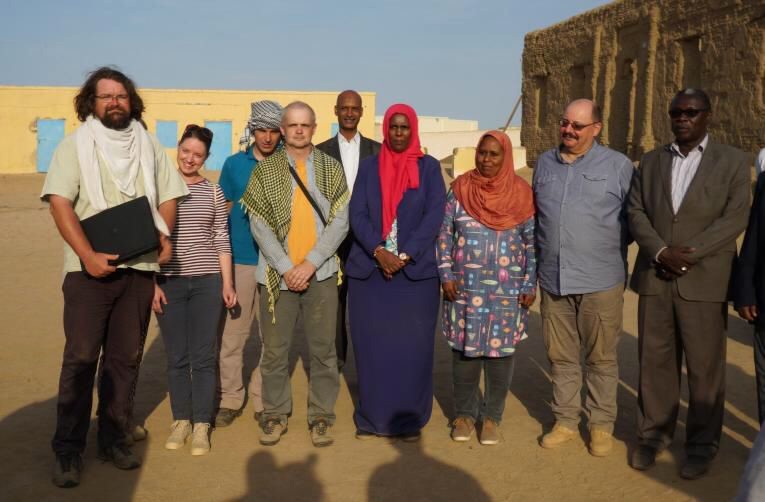
What inspired you to pursue prehistorical Archaeology, Egyptology and political science?
As a child I liked to read books on history. Mr. Vojtech Zamarovský was the most famous author of non-fiction on ancient history in Slovakia. His books were readable as a fiction literature. He and good history teachers inspired me to study prehistory. After I had finished my studies of Archaeology, it happened by extraordinary coincidence that Egyptology opened its gates in Prague after nineteen years, in 1989. I became one of its ten students. The Velvet Revolution brought essential changes to the university studies. We were requested to add another specialization in combination with Egyptology. My classmates mainly chose archaeology, but I was already graduated. However, political sciences returned to universities after years of prohibition. It was attractive to me to meet live policymakers in lecture halls in this revolutionary period, after years of seeing communist potentates on tribunes only. Thus, I started political studies and focused on the MENA region, related to Egypt and also Egyptology.
How did your DAAD scholarship at Hamburg University shape your perspective on international relations?
During my scholarship I was fully focused on Egyptology, thus the impact on my perspective of international relations was, I would rather say, additional. Hamburg was the first sea-port I saw; it is one of the largest European gates to the world. Even, as the Hanseatic town, it is a German federal state. It was only later, that I realized the ties which the system of German scholarships has to the bilateral relations of the Federal Republic of Germany and its international relations as such. The DAAD stays in touch with its every alumnus over decades and keeps these alumni attached to Germany.
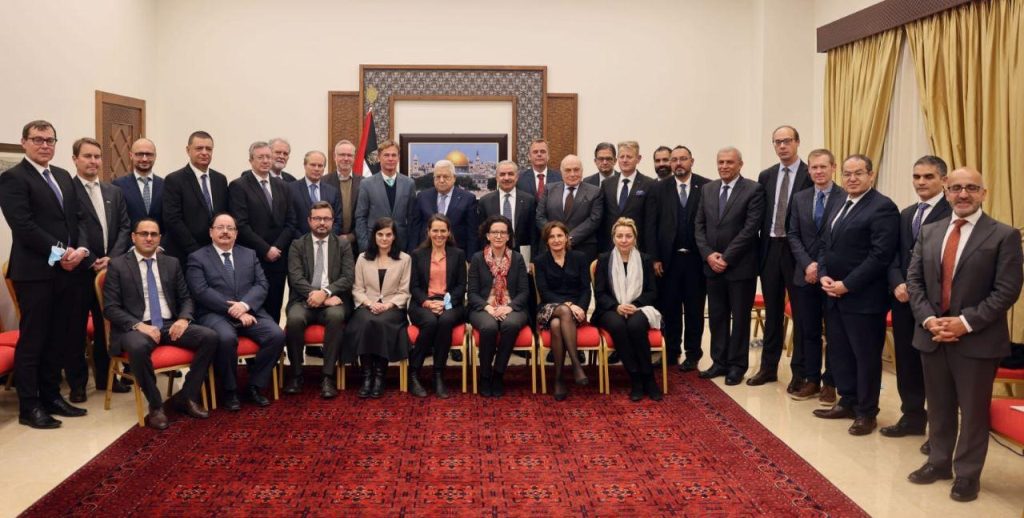
As a researcher of the Institute of Oriental Studies, Slovak Academy of Science, what were some of the most interesting projects you worked on?
I could mention four projects. Since my student days, I´ve worked on collections of ancient Egyptian monuments in Slovak museums. These monuments were brought on Slovak soil in the long 19th century by nobles, entrepreneurs and academics. Due to the turbulent history of Slovakia in the 20th century, information on the collections´ origin and history were prevailingly lost. My second project, therefore, focuses on travelers and collectors from the Slovak territory, who visited Egypt and Sudan in the long 19th century. The aim of this project is to reconstruct the itineraries and to trace imported monuments, wherever possible. The third project is a joint Polish-Slovak excavation at the Egyptian Tell el-Retaba site, carried out ca 100 km northeastwards of Cairo since 2007. The last project, so far, was since 2018, a Slovak archaeological mission at the Sudanese Duweym Wad Haj site, which is situated right opposite Gebel Barkal across the Nile River, ca 350 km northwards of Khartoum.
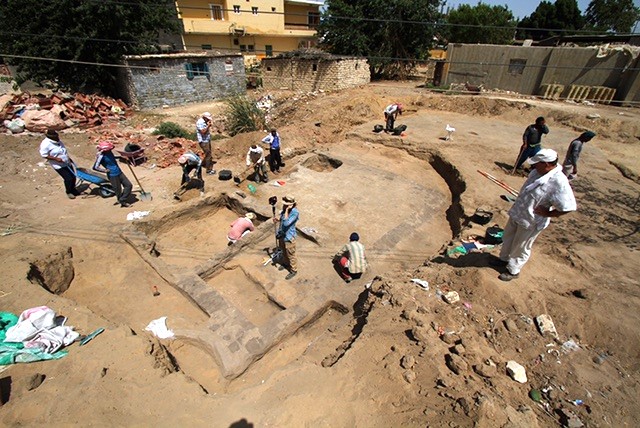
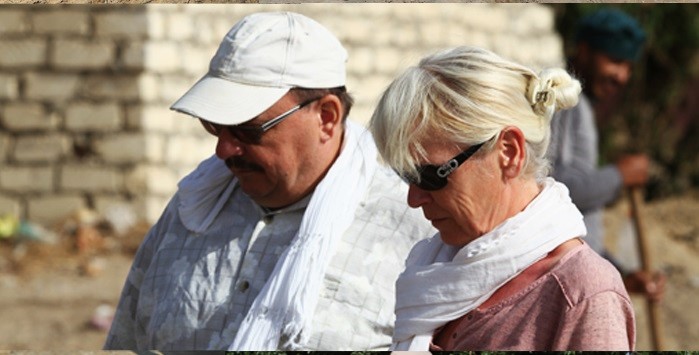
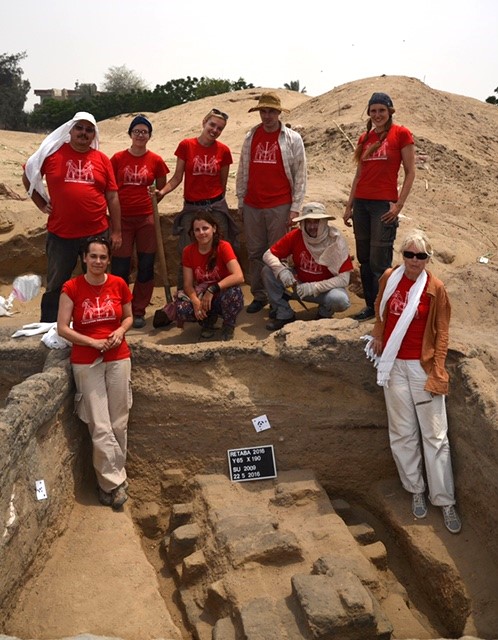
How did your scholarships at Cairo University and the Albright Institute in Jerusalem impact your understanding of Middle Eastern politics and culture?
My scholarship at Cairo University in 1999 was very useful for my Egyptological studies. However, my first contact with the Middle Eastern or rather Egyptian culture predated the scholarship for about six years, when I visited Egypt for the first time. It was fascinating to match the knowledge from books and lecture halls with the facts on the ground! In 2000 I traveled for the first time to Israel and Palestine. It is an Eden for Archaeologist but a Purgatory for Middle Eastern politics. After some months I escaped this wonderful landscape for the Kingdom of Jordan, exactly on the day, when the Second Intifada started.
What motivated you to join the Ministry of Foreign Affairs of the Slovak Republic in 2001?
During my studies in Prague, I became also interested in the modern Arab world, thus I took facultative lectures in Arab realities, together with a classmate from Egyptology. A couple of years later we went together to the Federal Foreign Ministry of Czechoslovakia to enquire about the availability of diplomatic positions. After the peaceful division of the federal state I registered myself into a “pool” of young diplomats at the Slovak Foreign Ministry; my classmate to the Czech one and she is now the Czech diplomat. As a researcher, I travelled quite a lot, and that´s why it wasn’t until 2001 that I was chosen as a “diplomatic spawn” into the Department of Middle East, Africa, Asia and Latin America of the Slovak MFA.
Can you share with us some of your experiences as the Deputy Head of Mission at the Embassy of the Slovak Republic in Cairo?
I had an acute start in Cairo. I arrived in December 2003 and H.E. Slovak President made a state visit to Egypt in January 2004. Anyway, I guess that Mr. President was satisfied with the program and the results of the visit. Cairo was a university of diplomacy, with well-established Egyptian diplomacy, the seat of the Arab League, and the highest number of diplomatic missions in Africa. Besides Egypt, we also covered relations with Sudan and Yemen from Cairo. At the end of 2004, we even got accreditations for Oman, Saudi Arabia and UAE. However, I was blessed to serve under competent Ambassadors, Mr. Jozef Cibula and Mr. Peter Zsoldos.
How did your time as the Deputy Head of the Slovak Embassy in Tel Aviv shape your understanding of Israeli-Palestinian relations? Slovakia is one of the few member states of the EU, which has embassies of both, Israel and Palestine, in its capital. My posting to Tel Aviv was prior to the opening of the Slovak Representative Office in Ramallah. In my capacity as the Deputy Head of the Slovak mission, I was requested by the Slovak Ambassador to be responsible for contacts with Palestinian authorities. I found a very helpful partner in the adviser of the Palestinian Foreign Minister for Strategic Planning and Policies, Ambassador Mr. Abdalrahman Bsaiso, who became the Palestinian Ambassador to Bratislava, later on. Commuting between Tel Aviv and Ramallah isn´t simple, due to several checkpoints on the way. Ambitions to push MEPP were beyond our weight. Therefore, we focused on bilateral cooperation, especially the economic one, supported by very competent economic diplomat Mr. Peter Kolesár. Had it been according to my taste, I would have made business with excellent Palestinian wine and good beer, however, in Slovakia, it would have been “holding a candle to the sun”. On the Israeli side, it was always interesting to discuss international relations with the Deputy Director General For Central Europe, Ambassador Mr. Pinchas Avivi. During the so-called Arab Spring he was interested in my knowledge of Egypt. I have also in good memory the Chief of Protocol, Ambassador Mr. Yitzhak Eldan, who especially appreciated my four months´ acting at the head of the Slovak Embassy as a Chargé d´Affaires ad interim.
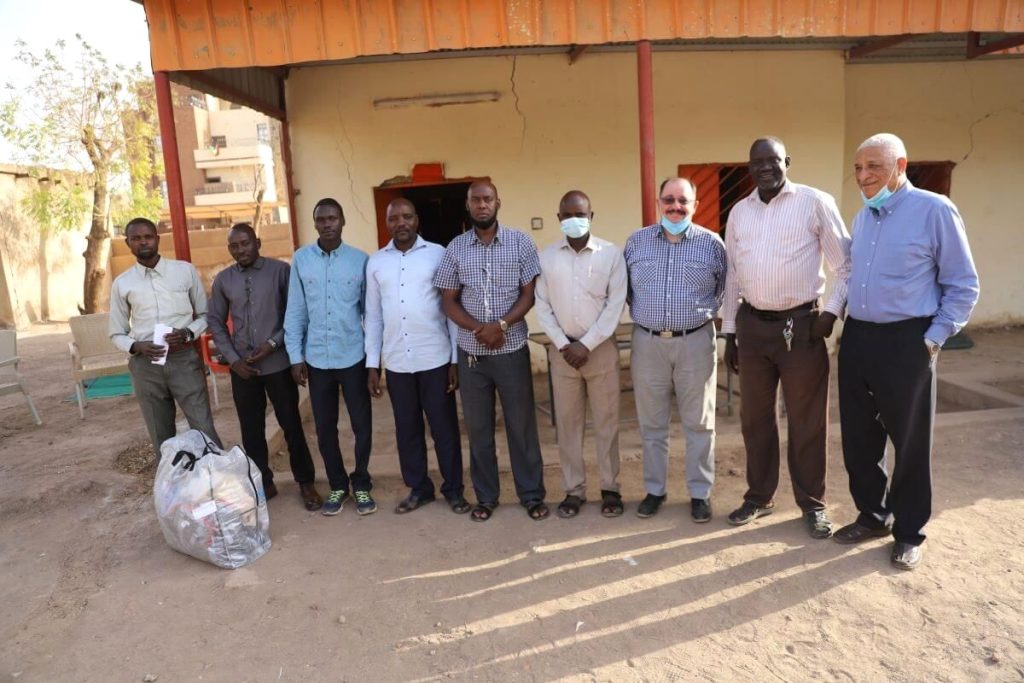
As the Head of the Slovak Representative Office in Palestinian Ramallah, what are your priorities and goals for promoting Slovak-Palestinian relations?
My priorities and goals proceed in some way with my work from 2009 to 2012 and I feel welcomed by both, Slovak and Palestinian authorities, especially at the Palestinian Ministry of Foreign Affairs and Expatriates. Moreover, my priority is to support twinning between Slovak and Palestinian municipalities and finance some projects for young families and children, including handicapped ones and orphans. My intention is also to increase the visibility of cultural cooperation. Slovakia has a relatively young statehood, actually, the 30th anniversary this year, but ties of Slovaks to the Holy Land and the holy cities of Bethlehem and Jerusalem are very strong and deeply rooted in history. This I intend to display in an exhibition. Slovakia also welcomes Palestinian students interested in studies at Slovak public universities and supports them through governmental scholarships. Actually, Palestine is among the top five receivers of the Slovak scholarships. I cooperate in this field with the Palestinian Ministry of Higher Education and the Palestinian Head of Mission in Bratislava, Ambassador Mr. Attallah Qubia, who has, by the way, also strong ties to Africa. There is also already established cooperation with Palestinian customs authorities, with which we might proceed on the EU level. Besides this, Slovakia, together with Greece and Italy, leads an EU twinning project focused on strengthening the institutional capacity of the Palestinian Energy and Natural Resources Authority and the Palestinian Electricity Regulatory Council. This is also a way, how Slovak experts, managed by the local representative Ambassador Mr. Milan Cigáň, are able to support useful and highly appreciated cooperation.





